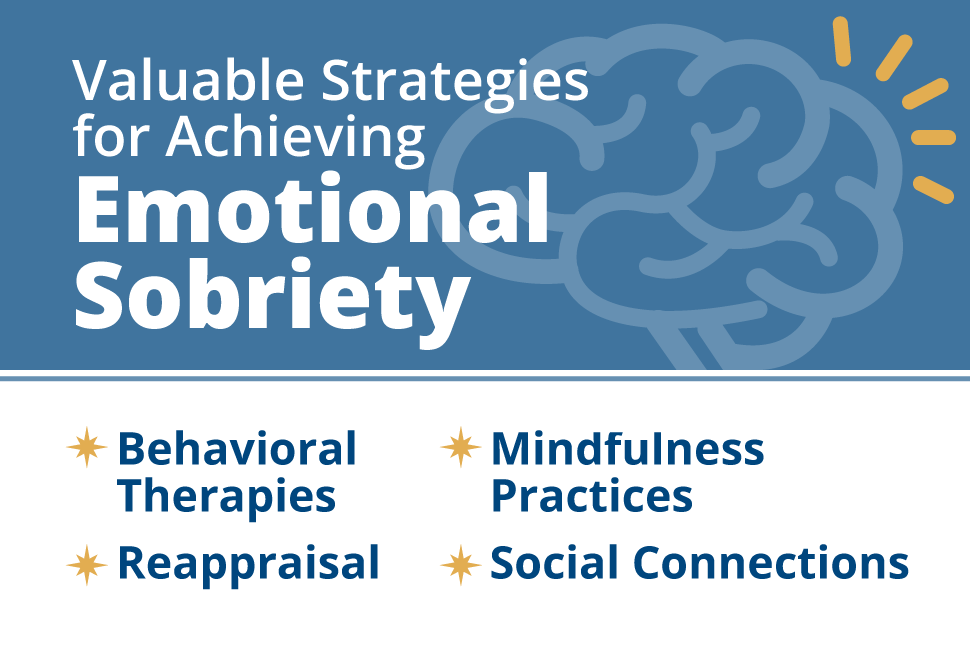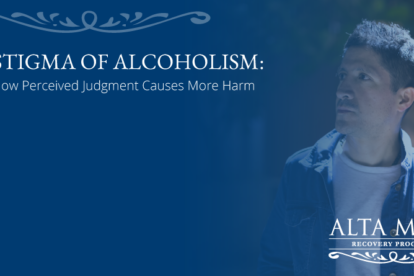
What Is Emotional Sobriety?
Emotional sobriety is an important factor in recovery. It means being able to confront and cope with all the negative emotions that were ignored when using drugs or alcohol. These are the feelings that can act as triggers for relapse, so being able to manage them is crucial for recovery and for staying sober over the long-term.
Emotional sobriety is a concept that originated with Alcoholics Anonymous (AA), a 12-step support group program for those who struggle with drinking. Participants in AA and other peer support programs work through the steps to achieve lasting sobriety. The twelfth step suggests taking the message of AA to others, while also living the steps and practicing AA principles in everything a person does. This step also mentions emotional sobriety and that those who have completed the program should help others achieve it. The concept of emotional sobriety is not limited to people in 12-step recovery—it is useful for anyone struggling with addiction.
Working toward emotional sobriety is a long process and can be started with the help of addiction professionals in a world-class alcohol treatment center.
Beyond Physical Sobriety
What the founders of AA recognized and that is important to anyone with a substance use disorder today is that simply stopping use of a substance and avoiding relapse is not enough. While this may be the first and most urgent part of recovery from an addiction, it is also crucial to address all the negative feelings, thoughts, and behaviors that were smothered and ignored by drinking or drug use. Only when they are confronted and managed can someone truly achieve both physical and emotional sobriety.
One of the most important reasons to address negative emotions and to learn to control or manage them is to avoid relapsing. Negative feelings are often triggers for substance use, and if they are not regulated a relapse becomes nearly inevitable. The less obvious reason to work toward emotional sobriety is that it improves overall mental health and quality of life.
Emotional sobriety is complicated and difficult to define, but generally it means being able to experience, confront, and accept all emotions, even the painful ones. It doesn’t mean being happy all the time, but it does mean having a healthy relationship with emotions and using positive strategies to cope with those that are negative. It is a complex and long process to learn to become emotionally sober.

How to Achieve Emotional Sobriety
Working toward emotional sobriety is different for everyone. Some strategies work better for certain people than others, and the time it takes to successfully manage emotions may be longer or shorter depending on the individual. A good treatment program for addiction will include several strategies and techniques for helping individuals learn to regulate feelings and develop emotional sobriety. There are also some important strategies that anyone can use, in or out of treatment, to have a better emotional balance:
- Behavioral therapies. These kinds of therapies, including the gold-standard cognitive behavioral therapy, focus on practical strategies for becoming more aware of emotions, thoughts, and behaviors in the present and taking steps to change or cope with those that are negative. It provides tools that can be used outside of therapy to confront and deal with negative feelings in a positive way.
- Reappraisal. Researchers have found that people with healthy emotional coping mechanisms commonly use a strategy of reappraisal to confront milder negative emotions. They confront rather than avoid the feeling and reframe it to make it more positive. For example, feeling anxious about a job interview, a person might recognize the anxiety and minimize it by focusing on the positives of having a new job.
- Mindfulness practices. Being emotionally healthy includes being aware of feelings, not dwelling too much on the past or future, or in other words, being mindful. It is possible to practice and develop mindfulness through techniques like yoga and meditation.
- Social Connections. Having a strong social network is another good way to manage negative feelings. Being able to talk to someone who can be trusted is an important factor in confronting and dealing with troubling emotions. Good social connections do not have to be numerous, but they do have to be deep and meaningful, rather than on the surface or shallow.
Emotional sobriety is a state, but it is also a process. No one achieves perfect emotional sobriety, and the important thing is to always be working toward better balance, greater emotional awareness, and the use of coping strategies that are healthy and productive.






